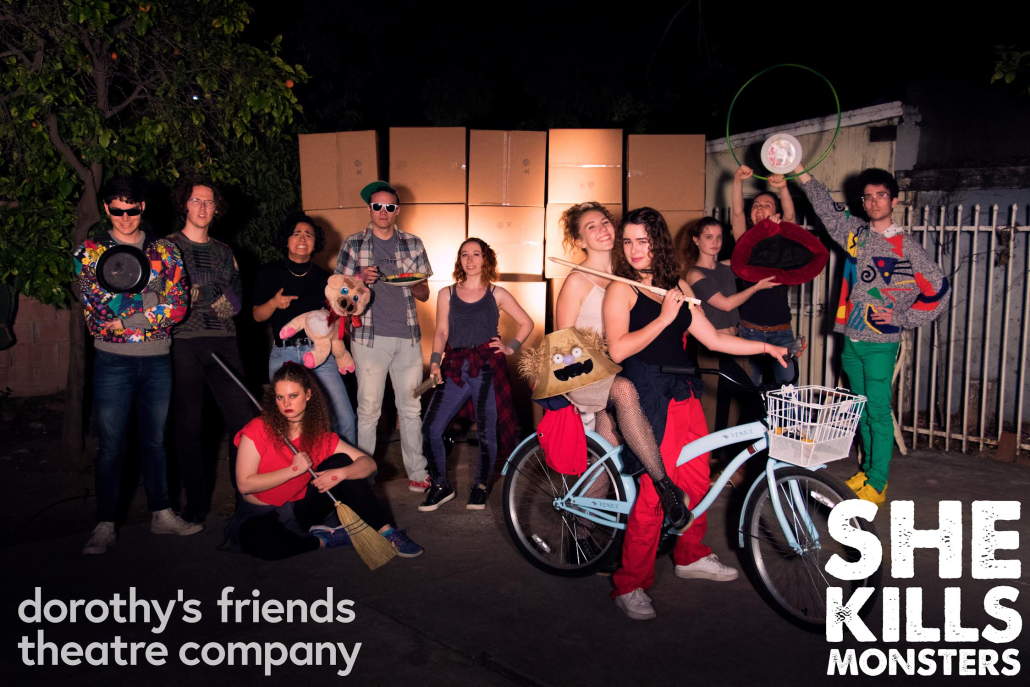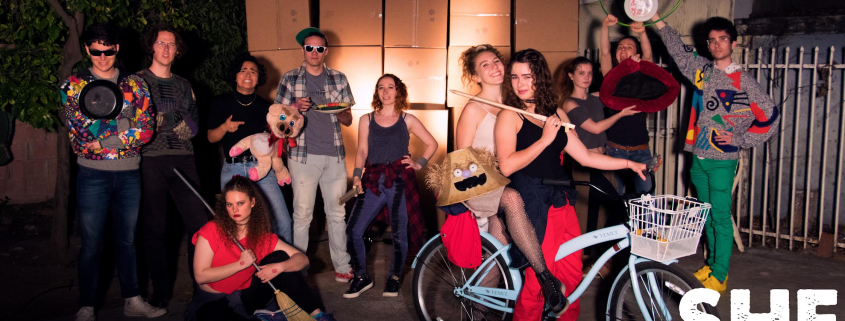Theatre Company provides community

Are you a friend of Dorothy’s? Whether you are or not, Dorothy’s Friends Theatre Company is a wonderful hub of creative talent open to all.
Started by a group of friends who felt a lack of representation within the School of Dramatic Arts, DFTC’s mission is to create positive, queer and empowering theater, according to MJ Adamson, a sophomore majoring in stage management and the company’s production manager.
“Our entire purpose is to create a safe space for queer individuals and allies to have an environment of like-minded people where they feel seen and protected,” Adamson said. “It really goes to being able to see people on stage who are like you, and I think that’s something that is really difficult growing up whether you’re queer or of a minority race or of a specific gender, so I think that’s something that we really try to emphasize and uphold.”
The name of the company dates back to pre-World War II, where the term “a friend of Dorothy’’ was used as a euphemism for discussing sexual orientation when such topics weren’t openly discussed in society. Originating from Judy Garland’s role as Dorothy in “The Wizard of Oz,” it was a quick and safe way for members of the LGBTQ+ community to identify each other.
“These days, it is much easier for us to be open about and proud of our identities, but we want to honor the legacy of those who came before us in everything that we do,” the company’s website reads. “If you’re a friend of Dorothy, you’re safe with us.”
DFTC’s repertoire includes important and notable queer pieces including “Fun Home”, “She Kills Monsters” and “Abraham Lincoln’s Big Gay Dance Party.” Adamson said the pitch process for DFTC, which is open to all students at USC, allows the organization to stay open to plays of all sorts.
The collaborative process requires approvals from the literature team, artistic directors and executive board. Mixing newly written pieces with preexisting works, DFTC hopes to increase the number of shows they do each semester, according to Adamson.
“Currently, it’s more USC-based. We’re fairly new, we’ve been around for about five years, Adamson said. “Currently, our focus is more of reaching the USC environment and making that a community and home for individuals before we start branching out, but in the future, I think definitely once we are more progressed and once we’ve found more of the community we’re trying to reach, we’d love to reach out more [in Los Angeles].”
Although the pandemic changed how the company work on shows, it allowed the group to experiment and be inventive in their approach. Even amid social-distancing rules, DFTC was able to produce “Sibylla” in April 2021, an audio drama written by Lane Kittle-Kamp, a senior majoring in classics.
Now returning to campus, DFTC is taking what it learned over its remote work and transitioning back to normal with a fall cabaret lined up next.
“So much of theater arts is based on human connection,” said Sarah Showich, a sophomore majoring in theatre who serves as the head of social media and PR.
“Right now, we’re in the middle of production for our fall cabaret and ‘Rocky Horror Shadow’ cast, and on the horizon, we’re looking at branching out more,” said Samantha Vargas, current interim president and treasurer of DFTC.
Vargas said DFTC hopes to collaborate with interested students at USC to feature original work and encourages contributors and participants in the company to be authentic in their storytelling and acting.
“I think that one of the best ways to be inclusive and create representation is to represent yourself,” Vargas said. “Write your story, write what you know, write what’s true and what has meaning to you because not everyone is going to feel represented by your work but at least one person will. The goal is not to try and represent everyone but to represent people that are real.”
DFTC is different from any of the other theater opportunities available for students on campus because they provide a space for queer individuals, specifically, to gain valuable professional experience.
“We have this special privilege of being able to grant not only a theatrical community but also to really create the space for queer creatives to get hands-on experience and to get their stories told,” Showich said. “And if we can empower the people we work with on the production teams and actors and audiences by showing them some representation that they might not have in other places, that’s so special to me and I think that that’s something that’s so special to DFTC.”
DFTC is dedicated to providing a community for students and the goal is to continue to grow as a presence on campus, according to Adamson.
“We’re really interested in becoming a household name, not in the way that we want publicity but in the way that we want, as queer individuals, as people who have felt ostracized and who haven’t always had a home, to have people come to USC and know that DFTC is a place for them to go,” Adamson said.

